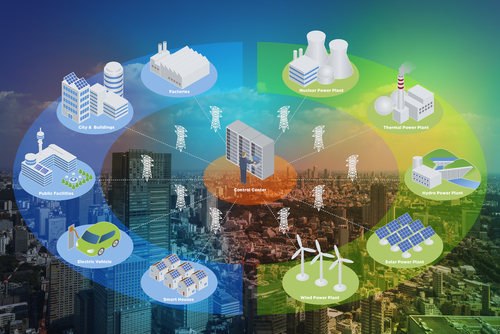
The Appalachian Regional Commission (ARC) is funding a $10 million multi-state collaboration with Penn State University to develop and deploy smart grids for rural electric cooperatives, researchers said.
Combined with matching funds from multiple partners and industry stakeholders, the more than $20 million in total funding will pay for a three-year project across Appalachia. The project will be led by Tennessee Tech University, and have partnerships in Pennsylvania, Ohio, Massachusetts, West Virginia and Tennessee.
The team from Penn State will use $750,000 of the ARC grant to focus on improving resilience in Tri-County Rural Electric Cooperative Inc.’s power grid. The grid supplies electricity to nearly 20,000 people in Tioga, Potter, Bradford, Lycoming, McKean, Cameron and Clinton counties.
“This initiative to expand smart grid modeling services to more electric cooperatives and utilities is instrumental in ensuring that the power grid can adapt to the evolving energy landscape, where renewable sources play an increasingly vital role in our energy future,” said Peter B. Idowu, professor of electrical engineering at the university’s Harrisburg campus. “This will enable electric energy delivery and service units to evaluate technologies and determine the impact of distributed energy resources as they generate, store or consume electricity when integrated with modernized electric grids.”
Collaborators on the project will each focus on different aspects of the modeling services, from battery use and sustainable resources to grid resiliency. Using a microgrid simulation platform, rural electric utilities will be able to model and test different scenarios, researchers said. For example, researchers could input into the scenario a tree falling in Lycoming County, and see what issues that may cause downstream and what methods can be deployed to mitigate power loss through alternative sources.
“We know that Appalachia regions are often left behind in advanced technologies in several ways,” Idowu said. “These areas are remote and generally small without the resources needed to adapt smart grids — especially if they don’t know how they will work in their specific network.”